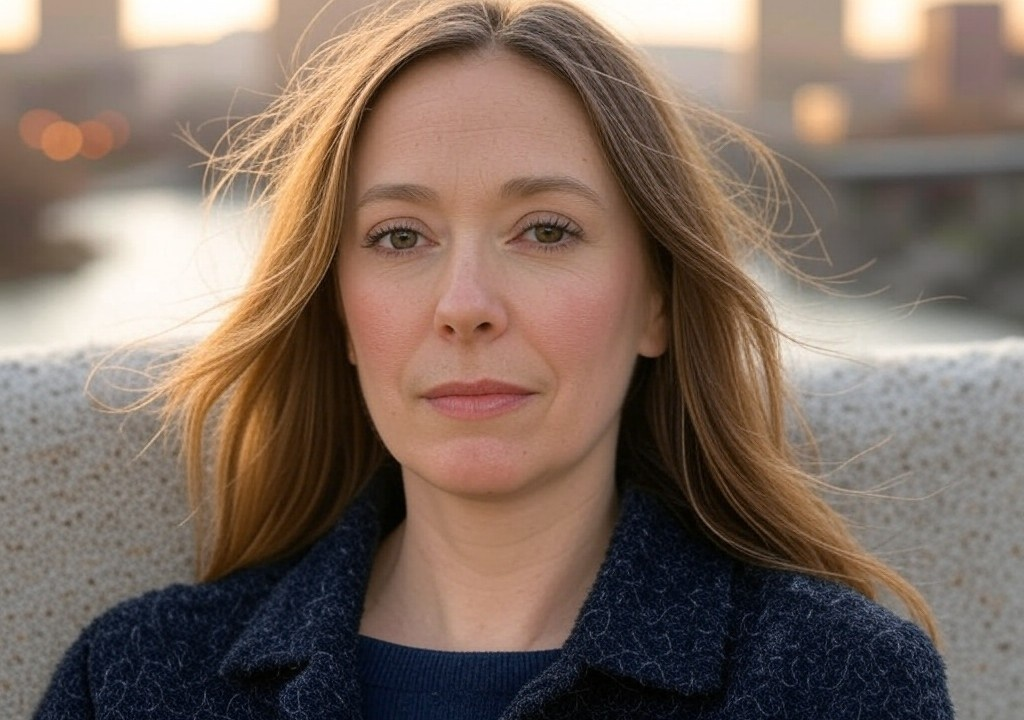“Why don’t you write about something lighter? Something people can actually use?” my dad asked me one Thanksgiving after reading one of my investigative pieces about gentrification in Boise. We were standing in my parents’ brewery, which smelled like malted barley and sagebrush, as if my childhood had been bottled and carbonated. I'd just published a deeply researched article on housing disparity, but apparently, Dad wanted me to pivot to haikus about sunshine.
We laughed it off, but his words stuck with me. What is it about journalism that snagged me long ago, even as kids in my high school debate team called me “Leslie Loud-ruff” or teased me for turning every argument into an essay? For me, the truth has always been this: stories are connective tissue. They’re the awkward “So, how did you two meet?” tales at weddings, the confessional, gut-spilling moments over wine with your best friend, the knowing look of "me too" that says, "You're not alone." When we tell stories, we learn about ourselves. And whether we’re talking about shifting demographics, the adventures of falling in love, or the painful process of moving on, every story matters, from the colossal to the everyday.
So why this path? Why write about relationships, especially when my own romantic life has occasionally felt like I’m in a choose-your-own-adventure novel gone wrong? Let me take a seat at the metaphorical brewery taproom table and break it down.
From Idaho Potatoes to People Problems
Growing up in Boise’s North End, I came to see love and connection the same way my grandparents understood farming: you must tend to it patiently, hands in the dirt, waiting for something substantial to grow. Watching their long marriage—filled with respectful bickering over harvest decisions and shared laughter at the breakfast table—gave me my first insight into enduring love.
But the romantic landscape I encountered as an adult? Less enduring, more, um… compostable. From bad dates at Boise River cafés to whirlwind flings with results that had all the shelf life of my grandma’s homemade bread, I learned that modern love was messy, confusing, and hilarious. It’s also deeply human.
I started writing about relationships because, as I covered heavier topics like class and cultural shifts, I realized the micro-stories often said more than the macro ones. Someone’s patterns in love and heartbreak are reflections of all the big, invisible forces shaping them—cultural conditioning, generational baggage, that one text you sent at 1 a.m. that changed everything.
Why Write About Love When You Could Write Literally Anything Else?
Cue the eye-roll: “Another relationship writer? Couldn’t you be out Land-Man™-splaining Yellowstone or busting economic myths about Idaho’s tech boom?”
Sure, I could. But here’s the thing: love and connection are at the root of everything. Superficial as dating trends may seem (Do we really need another think piece on ghosting? Spoiler: yes), relationships are a microcosm of who we are and where we’re going. They’re how we navigate power, vulnerability, and trust. They’re where we store our wildest hopes and fears.
And let’s be honest: talking about housing trends might affect your wallet, but making sense of that breakup—or figuring out why you’re losing sleep over a text with a three-day gap—affects both your head and your heart. Relationships are simultaneously simple and monumental. That’s worth diving into!
Besides, love stories are excellent storytelling terrain. They’re messy like Chicago snowstorms and as satisfying as the coffee shop scenes in every early-2000s rom-com. You might not remember the zoning laws I wrote about five years ago, but I’ll bet my last sip of beer you’ve revisited a memory of your first kiss at least once this week.
What I Write vs. What I’ve Learned
It’s impossible to spend hours diving into human connection without stumbling into your own self-reflection. Some takeaways from digging into love, Idaho-style and beyond:
-
Relationships are farms, not fast food. Grandma was right about potatoes and people alike. You get out what you put in, but, wow, is waiting to see the growth excruciating. Sustainable love? That takes composting the bad days into soil for the next season.
-
The “rules” are clichés for a reason—but break them anyway. Hearing someone tell you, “You’ll meet someone when you least expect it” is the least helpful thing ever—until you meet someone buying frozen waffles at Albertsons and your world shifts. (Shout-out to my 18-month relationship with that particular waffle-buying bad decision.)
-
Flirting is funny, not scientific. Look, you can absolutely learn from love language quizzes and somber panel-discussion podcasts on attachment theory. But attraction is also a whole lot of “Do they get my Love Actually references?” and “Do their texts make me laugh?” Connection doesn’t have to be perfect to be real.
Telling Stories That Matter
So why do I weave Idahoan roots with Joan-Didion-inspired existential musings on relationships? Because every story is an invitation. Writing helps others see themselves in universal failures and triumphs. It’s the wink of recognition that says, “We’ve all overshared on a third date. It’s not just you.”
When people feel supported—whether they’re laughing at the regional quirks I sneak into essays or applying my advice for navigating the thorny, tricky patchwork of love—they feel less alone. That “me too” moment sparked by a story? It’s what makes a freelance night owl like me keep banging out words on a keyboard.
Why This Path Feels Right
Sometimes, I think back to my dad’s brewery comment, and I smile. It was good advice, though not in the way he meant it: teaching people how to learn from love isn’t “simple” work, but it’s certainly necessary. We are so many things at once—romantics and skeptics, potato farmers’ grandkids and tech-chasing urbanites, uncertain and shamelessly hopeful. Through my writing, I don’t aim to teach readers the way toward perfect relationships—because there’s no such thing—but I do hope to create a richer emotional landscape for exploration.
Yes, this path chose me as much as I chose it. And if it also involves one too many metaphorical road bumps (please remind me not to text back “U up?” types at 11 p.m.), I’ll still pick storytelling as my heart’s compass every time. So here’s to more connection—and maybe a little bit less compost in the process. Cheers!




















